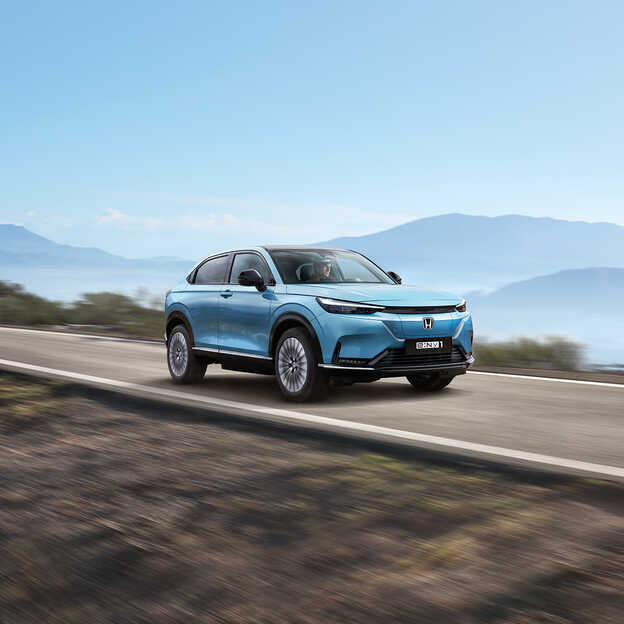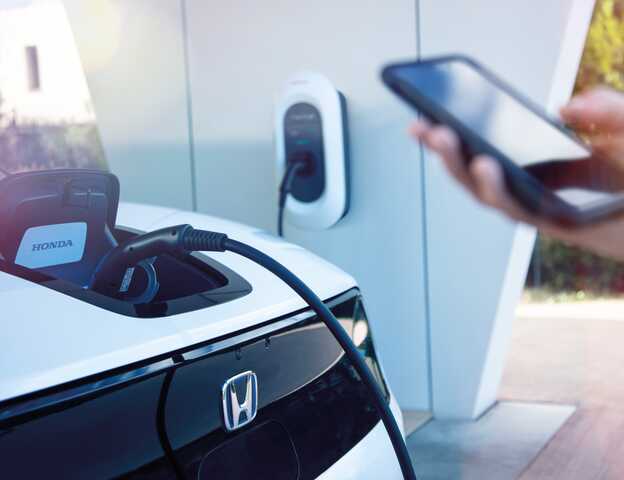Advantages and Disadvantages of Electric Cars
If you’re looking for your next new car, now might be a great time to invest in an electric vehicle (EV). With a range of advantages, EVs are increasingly becoming a more accessible and popular choice.
So, could an EV be right for you?
Advantages of electric cars
More efficient
Electric cars are highly efficient, converting around 77% of energy into usable power for the road. In comparison, petrol or diesel vehicles average about 12-30%. This means EVs make far better use of the energy they receive, allowing them to travel further using less power.


Zero tailpipe emissions
Electric cars produce zero tailpipe emissions while driving. This can reduce your overall running costs, with benefits such as exemptions from road tax and lower charges in low-emission zones—making EVs an appealing choice for city drivers.
Save money and time on fuel
Charging an electric vehicle is usually more affordable than filling up with petrol or diesel, helping you reduce your running costs. Plus, the convenience of charging at home means fewer trips to the fuel station—making everyday driving simpler and more efficient.


Reduced maintenance costs
With fewer moving parts than ICE vehicles, EVs require less frequent maintenance. You’ll still need to service an EV like any other car, though most EV batteries are designed to last for a decade or more.
Less noise pollution
EVs only produce sound from wind resistance and tyre traction. To improve pedestrian safety, legislation requires EVs to emit at least 56 decibels. Despite this, they remain significantly quieter than traditional vehicles.


Futureproofing
With the threat of ban on the sale of new petrol and diesel cars across Europe looming, electric vehicles are set to become the long-term solution. As battery technology continues to improve and manufacturing becomes more cost-effective, EVs are becoming a more accessible option for drivers looking ahead. Choosing one now can help you stay ahead of future regulations and evolving infrastructure.
An effortless drive
EVs make driving effortless, with no gear changes or clutch to worry about. Features like single-pedal control simplify driving, letting you speed up and slow down using just the accelerator. The result? A smooth, quiet, and intuitive driving experience.

What should you consider before buying an electric car?
Higher upfront cost
Electric vehicles (EVs) often come with a higher initial purchase price compared to traditional petrol or diesel cars. However, their lower running and maintenance costs can offset this over time.
Electric vehicle range
Range anxiety is a common concern with electric cars. However, modern EVs offer ranges between 200-490 km on a full charge, comparable to many traditional cars.
Charging time
Charging an EV takes time, but it can easily fit into your routine. A home charger with a 7kW output typically provides a full charge in around eight hours—perfect for overnight charging. On the road, rapid chargers can add about 100 km of range in 30 minutes, but this depends on the vehicle and charging point availability. Planning convenient top-ups during your journey helps you avoid waiting for a full charge.
Related reading
Honda Electric Range Overview.jpg/_jcr_content/renditions/c2_r.jpg)
29.11.23
How Do Electric Cars Work?
.jpg/_jcr_content/renditions/c2_r.jpg)
29.11.23
How Do Electric Cars Work?

28.11.23
What are the advantages of electric cars?
.jpg/_jcr_content/renditions/c2_r.jpg)
17.03.23
Are all Electric Cars Automatic?

23.02.23
Can I charge my Electric Car at home?

14.06.21
Is it quicker to charge your phone or your electric car?

